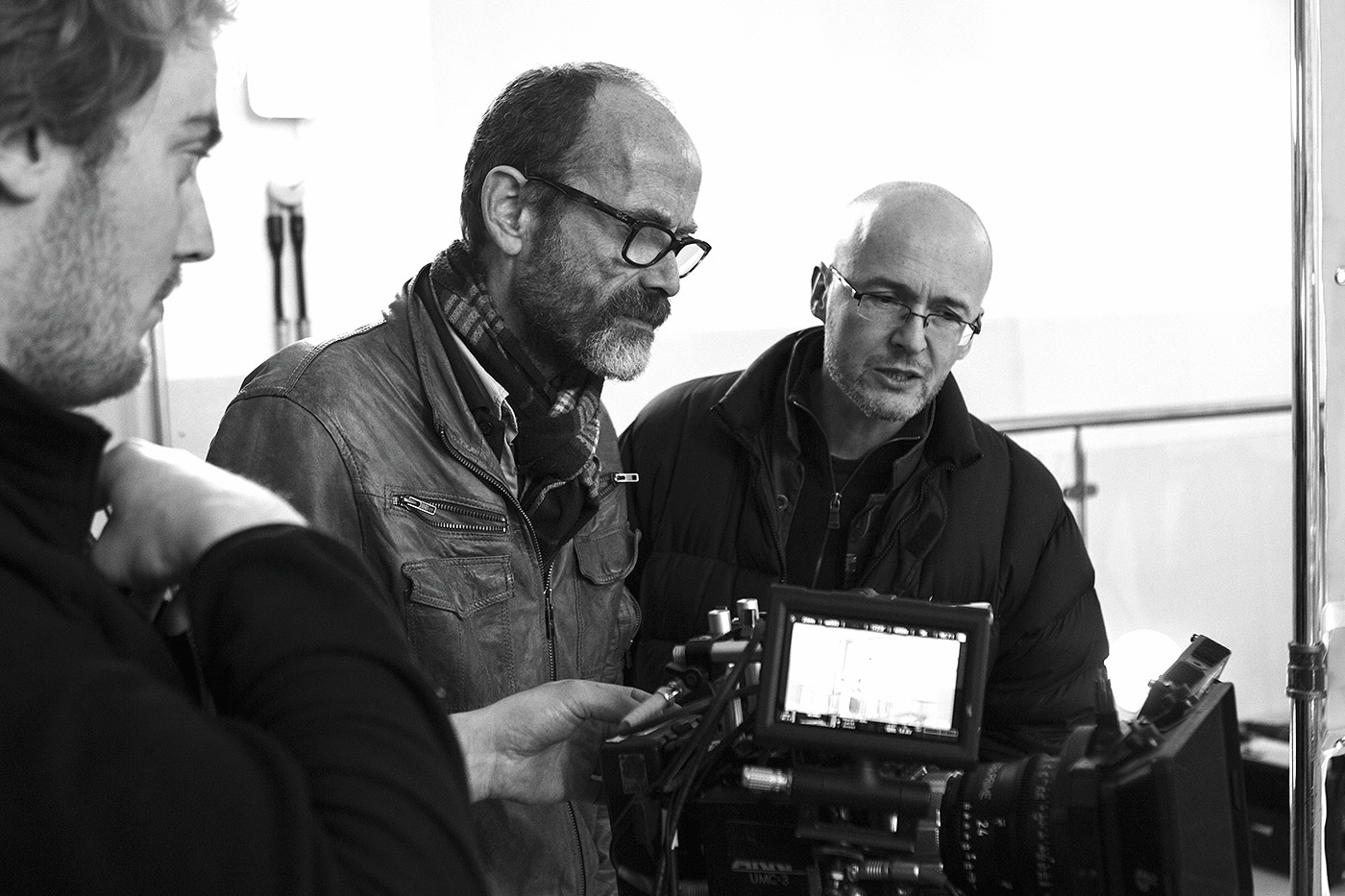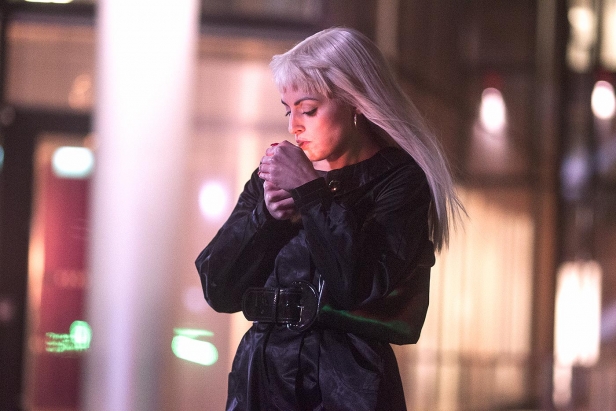For a science fiction film, director Simon Pummell’s feature-length fiction debut Identicals is firmly grounded in reality. As well as drawing on tropes of the genre like dystopia, untrustworthy high-tech businesses and high-speed chases, it also focuses a lot on human nature and identity. Ahead of its home release, we spoke to Pummell about just that.
How did the idea for Identicals develop?
I wanted to make a kind of circular film that explored the feeling that we all have multiple versions of ourselves out there in various ways, and the most obvious way being in digital culture, but also in our lives. People often have very different phases of their lives in the contemporary world, which is quite new, I think. When I first started working on the film, I’d moved from London to Amsterdam and had a whole new life and relationship, and I used to drive past my apartment in London and wonder who could still be there in this other, older life. It started with that idea, and then I wanted to find the shape for that.
One of the film looked at was Seconds, the John Frankenheimer film. I really like that film a lot. The transformations of identity in that film are very much about the Sixties. It’s a film that happens in the middle of youth culture being invented. It’s about this kind of boring middle-aged guy who gets the chance to be younger at a time when you’d actually want to be young and handsome and wild, and there are questions like what would that mean and can you handle it? So there are a lot of Sixties anxieties in that film. I think our anxieties are now much more about… not knowing who we are. I wanted to make a film that touched certain sci-fi tropes in a film like Seconds, but did something different and that was a bit more elliptical.
Identicals has a really strong look. Where did you get your inspiration from for that aspect of the film?
The cinematographer, Reinier van Brummelen, actually talked a lot about Brian De Palma films, and I think he’s a really interesting and underrated director with fantastic jumps of mood in his films. I also looked at Alphaville, the Jean-Luc Godard film. You can actually just make a very strong visual just by looking around at what’s around us now. I was travelling a lot before I made the film, and I spent a lot of time in these kinds of architectures, like airports and these between spaces that we tend to pass through without acknowledging. It came from that Alphaville idea, that if we carefully film the world we actually live in, it can look quite strong and futuristic.

What kinds of research did you do for the film?
The previous documentaries [I’d made] had very specific research on very specific topics, but this was more about looking at the different ways that multiple identities are expressed at the moment in culture, and the anxieties around them. In a way, it was a lot of different sampling in different places, and trying to find movies like Alphaville and Seconds, which touch on that really interesting brand of science fiction from the Sixties. All that kind of science fiction is just the world we live in looked at in a slight magnifying glass. It’s not a really big change. I did a lot of reading in that kind of literary science fiction and tried to pick out some films that were that particular approach to sci-fi. In some ways, even looking at films like La Jetée, films that are highly stylised versions of the world we live in but then become something really strange.
What do you find interesting about this area of science fiction, of identity?
I think most of the films I’ve made are somehow about this. The first documentary I made was a film called Body Song that basically depicted the arc of a single life, the portrait of an archetype from the start of life to death. But it used over a thousand different clips across the history of cinema all put together. It was an archival documentary film, but it was about the tension between the fact that we’re individual and anonymous. But my other documentary, Shock Head Soul, is about a psychiatric patient who could hardly hold onto his identity. Identities are quite fragile and quite constructed and we do real work to tell ourselves the story about who we are, and maintain that fiction of a certain identity.

Are there any other areas of sci-fi that you’d like to explore in the future?
Well, at the moment I’m writing an adaptation of a William Gibson short story, and I really hope that it will be my next film. I’m a huge William Gibson fan. I think new wave and cyberpunk are the two areas I find most exciting, and of course Philip K Dick is a pivotal reference point in bother those areas. There’s a huge amount of science fiction that I’m interested in delving into further. One of the really interesting things for me, having started as an animator and then going on to make documentaries, I felt like this film let me find a real space in which [I could work on] all the things I was interested in. It’s fantastic going to science fiction film festivals because all kinds of ideas… and concepts behind the films are very strong across the board… There’s a whole cluster of authors, Alfred Bester, Ballard, Dick, Gibson, who create this whole landscape, and that area of sci-fi that looks fairly closely at the world we live in now – I’d put the Alien films into that cluster of philosophical films about identity – it feels super rich to me and I feel very excited, so I’m already writing the next project.
Which films and filmmakers have influenced your work?
There’s quite a few. Some are very obvious. I mean, it’s hard not to look at Ridley Scott and the way that we came out of the illustration department of the Royal College. He’s an important example of someone who came from a really visual background. That attention to extreme detail in world building is really interesting. There are certain European sci-fi films, films like Alphaville are really important to me in terms of being science fiction that’s particularly European and approach the genre in a really particular way. I think I’ve always been very influenced by the Quay Brothers, the animators, who make total surreal worlds. They were really early mentors when I was an animator. Christopher Nolan just made a documentary about them, and their approach to world building has always been really important. There’s a lot of interest in that sort of surreal world building aspect. Brian De Palma isn’t a science fiction filmmaker, but how he pushed narrative in Hollywood I think is super interesting. John Frankenheimer, with the science fiction films that sort of had half the foot in science fiction and half the foot in realism, was probably a real touchstone too. Nick Rogue was also really important, with Bad Timing and The Man Who Fell To Earth.
Identicals is available on to buy on Digital/VoD on 15 August and DVD on 22 August. Get all the latest science fiction news with the latest issue of SciFiNow.
